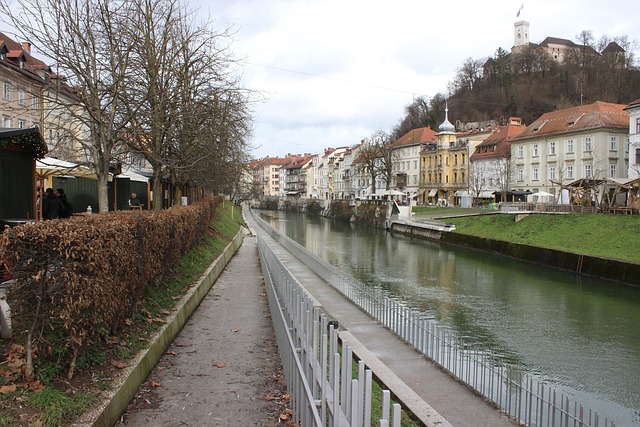Karachi's Amil Colony faces severe water supply challenges due to urbanization and aging infrastructure, resulting in inconsistent water availability, low pressure, and health risks from contaminated water. Historically reliant on wells, the city transitioned to a sophisticated public supply system with modern filtration and distribution. However, Amil Colony's centralized infrastructure gap, aging pipelines, and outdated billing systems contribute to frequent shortages and pollution. Innovative solutions like advanced purification, smart meters, community engagement, and infrastructure upgrades are crucial for achieving a reliable, sustainable water supply tailored to Karachi's unique needs.
In Karachi, Amil Colony faces significant water supply challenges, impacting daily life and sanitation. This article delves into the complex web of issues plaguing this bustling community. We explore historical perspectives on water access in Karachi, analyze the current state of the colony’s water infrastructure, and identify key problem areas. Furthermore, we present potential solutions and a roadmap for improving water supply, offering a glimpse into a brighter future for Amil Colony residents.
- Understanding Water Supply Challenges in Karachi's Amil Colony
- Historical Perspective: How Has Water Access Evolved?
- Current State: Issues and Problem Areas Identified
- Potential Solutions and the Road Ahead for Improved Water Supply
Understanding Water Supply Challenges in Karachi's Amil Colony

The water supply system in Karachi’s Amil Colony faces unique challenges due to the city’s rapid urbanization and aging infrastructure. The area, known for its dense population and narrow alleys, struggles with inconsistent water availability, a common issue across many urban centers in Pakistan. This problem is exacerbated by the outdated pipe network, which often leads to low water pressure and frequent interruptions.
Karachi, being a bustling metropolis, demands a robust and reliable water supply system to cater to its growing population. In Amil Colony, residents frequently face the dilemma of having either insufficient or contaminated water, impacting their daily lives and overall health. Understanding these challenges is pivotal in devising sustainable solutions for improved water management and access for the community.
Historical Perspective: How Has Water Access Evolved?

In Karachi, water supply has evolved significantly over time, reflecting broader urban development and technological advancements. Historically, the city relied heavily on natural sources like wells and freshwater springs for its water needs. These early systems, though rudimentary, were crucial in supporting the growing population and economic activities. Over the years, as Karachi expanded, so did the demand for cleaner, more reliable water sources. This led to the establishment of public water supply networks, marking a significant shift from individual well systems.
The evolution continued with the introduction of modern infrastructure, such as pumps, pipes, and treatment plants. The government played a pivotal role in these developments, ensuring a steady and safe water supply for residents. Today, Karachi’s water supply system is a complex network, incorporating advanced filtration techniques and distribution channels. This transformation underscores the city’s commitment to addressing its water needs, not just for the present but also for future generations, reflecting a continuous effort to keep pace with its dynamic urban landscape.
Current State: Issues and Problem Areas Identified

The water supply system in Amil Colony, Karachi, faces several challenges that impact its effectiveness and efficiency. One of the primary issues is the lack of a centralized infrastructure, resulting in an inadequate distribution network. This problem leads to uneven water access, with some areas experiencing frequent shortages while others have consistent supplies. Moreover, the existing pipelines are aging and often suffer from leaks, wastage, and contamination due to negligence and lack of maintenance.
Another critical area of concern is the quality of water. The rapid urbanization of Karachi has put immense pressure on the available water sources, leading to pollution and scarcity. Unregulated industrial and domestic waste disposal directly impacts nearby rivers and aquifers, making it challenging to ensure safe and clean water for residents. Additionally, outdated billing systems and meter readings contribute to inaccurate billing practices, causing dissatisfaction among consumers.
Potential Solutions and the Road Ahead for Improved Water Supply

The water supply in Amil Colony, Karachi, faces challenges that require innovative solutions. One potential solution is the implementation of advanced water purification technologies to enhance the quality and accessibility of water for residents. This can include treating existing water sources to remove contaminants and ensuring a consistent supply. Additionally, investing in infrastructure upgrades such as repairing leaks, installing smart meters, and expanding distribution networks will help prevent wastage and improve overall efficiency.
Looking ahead, community engagement is crucial for sustained progress. Educating locals about water conservation practices and promoting responsible usage can lead to significant long-term benefits. Collaborating with local authorities and NGOs can facilitate the adoption of sustainable water management strategies tailored to Karachi’s unique needs. By combining technological advancements with community involvement, Amil Colony can move towards a more reliable and sustainable water supply system.
The water supply challenges faced by Karachi’s Amil Colony highlight a pressing need for sustainable solutions. By understanding historical perspectives and identifying current issues, it is evident that collaborative efforts are required to enhance the community’s access to this vital resource. Through implementing potential solutions, such as infrastructure upgrades and efficient management strategies, the road ahead for improved water supply in Amil Colony appears promising. Addressing these challenges will not only benefit residents but also serve as a model for sustainable urban development across Karachi.
